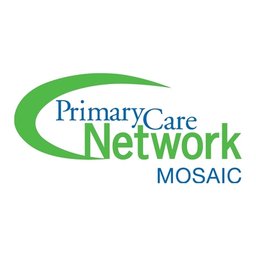Social Prescriber
Odiham, ENG, GB, United Kingdom
Job Description
MOSAIC HEALTHCARE JOB DESCRIPTION
Social Prescriber
Job Title:
Social PrescriberReporting to:
Mosaic Healthcare PCN BoardWorking Hours:
22.5 Hours excluding lunch breaksLocation:
Odiham and Old Basing Health CentresPURPOSE OF THE ROLE:
Social prescribing empowers people to take control of their health and wellbeing through referral to non-medical 'link workers' who give time, focus on 'what matters to me' and take a holistic approach, connecting people to community groups and statutory services for practical and emotional support. Link workers support existing groups to be accessible and sustainable and help people to start new community groups, working collaboratively with all local partners.
Social prescribing can help to strengthen community resilience and personal resilience and reduces health inequalities by addressing the wider determinants of health, such as debt, poor housing and physical inactivity, by increasing people's active involvement with their local communities. Social Prescribing particularly works for people with long-term conditions (including support for mental health), for people who are lonely or isolated, or have complex social needs which affect their wellbeing.
JOB SUMMARY:
Working within an integrated model of care to support the health and wellbeing of patients working closely with GPs, and multi-agency teams to achieve:
Holistic care planning, how needs can be met by services and other opportunities available in the community and the co-ordination of input Information/advice about a range of services to promote health and wellbeing and maintain independence within communities Reducing demand on statutory services and to combat unnecessary GP appointments
KEY RELATIONSHIPS:
The relevant GP surgery for day-to-day operational work Staff and patients of the practices in the Primary Care Network, local government, voluntary and private organisations, suppliers of goods and services, the general public.
KEY RESPONSIBILITIES:
Enabling access to local services, including personalisation support: Take referrals from GPs and other clinical staff. Develop knowledge of local services to enable the individual to access a range of services to meet their needs and ensure individuals are engaged and connected with their local community and other organisations to make best use of resources. Assess how a patient's health and wellbeing needs can be met by services and other opportunities that are available in the community. Produce a simple personalised care plan to address the patient's health and wellbeing needs by introducing or reconnecting people to community groups or statutory services. Evaluate how actions in the care and support plan are meeting the individual's health and wellbeing needs. Provide personalised support to individuals, their families and carers to take control of their health and wellbeing, live independently and improve their health outcomes. Develop trusting relationships by giving people time and focus on 'what matters to them' Take a holistic approach based on the person's priorities and the wider determinants of health. Need to manage and prioritise their own caseload in accordance with the health and wellbeing needs of their population and refer people back to other health professionals within the PCN. Increase the strengths and capacities of local communities, enabling local voluntary, community and social enterprise organisations (VCSE) and community groups to receive social prescribing referrals. Work collaboratively with all local partners to contribute towards supporting local VCSE organisations and community groups to become sustainable through sharing intelligence regarding any gaps or problems identified in local provision with commissioners and local authorities. Inform and advise GPs, and primary care staff, either written or verbally, about what services are available within the community and how and when patients can access them.
CO-ORDINATION & INTEGRATION:
Liaise with a range of multi-disciplinary professionals who are involved in a patient's care, ensuring a smooth and coordinated approach, especially where multiple agencies are involved. Support the PCN's agenda in the management of care and support and avoid unnecessary hospital admissions, residential care placements and unnecessary GP referrals. Actively participate in practice level multi-disciplinary team meetings. Identify when there is a need for urgent action or for a step-up in care and alert the relevant professional(s) .
RECORD KEEPING AND EVALUATION:
Keep accurate and up-to-date records of client contact, including the use of GP clinical systems (relevant training will be provided) Record and collate information, including case studies and reports, to demonstrate the impact of the service. Demonstrate an understanding of the impact of the service on wider health, social and voluntary sector services Contribute towards the development of the project and attend meetings as requested. Identify opportunities and gaps in services; feeding back information to the PCN.
GENERAL RESPONSIBILITIES:
Be a champion to promote co-ordinated care and support for all, providing regular updates. Consider how to introduce best practice already being developed through other local service providers. Work collaboratively with the other Social Prescribers. Take part in Mosaic Healthcare PCN events and activities as agreed. Establish strong links with other PCN staff and contribute to the wider aims and objectives of the organisation. Work in accordance with the organisations policies and procedures. Attend training courses as required. To carry out any other duties as may be reasonably required from time to time.
CONFIDENTIALITY:
As per both Government legislation and practice policies, ensure that all confidentiality, data protection and information governance policies and guidelines are followed and strictly adhered to, reporting any infringements to the PCN or Practice Managers.
HEALTH & SAFETY:
The post-holder will assist in promoting and maintaining their own and others' health, safety and security as defined in the Health & Safety Policy and related risk assessments.
EQUALITY & DIVERSITY:
The post-holder will support the equality, diversity and rights of patients, carers and colleagues in line with surgery and PCN policies.
RESEARCH:
Co-operate and participate as required in research projects within the PCN.
PROFESSIONAL DEVELOPMENT:
Maintain continued education by attendance of courses and study days as deemed useful or necessary for professional development and PCN needs. Attend and complete annual mandatory courses.
IT:
Commitment to the use of IT, data entry, coding and targets as required by the PCN.
Job Type: Part-time
Pay: 15.00-15.34 per hour
Expected hours: 22.5 per week
Benefits:
Company pension Employee discount Health & wellbeing programme Store discount
Application question(s):
How many years experience do you have in healthcare?
Licence/Certification:
driving licence and access to your own vehicle? (required)
Work Location: In person
Beware of fraud agents! do not pay money to get a job
MNCJobs.co.uk will not be responsible for any payment made to a third-party. All Terms of Use are applicable.
Job Detail
-
Job IdJD3705835
-
IndustryNot mentioned
-
Total Positions1
-
Job Type:Part Time
-
Salary:Not mentioned
-
Employment StatusPart Time
-
Job LocationOdiham, ENG, GB, United Kingdom
-
EducationNot mentioned


